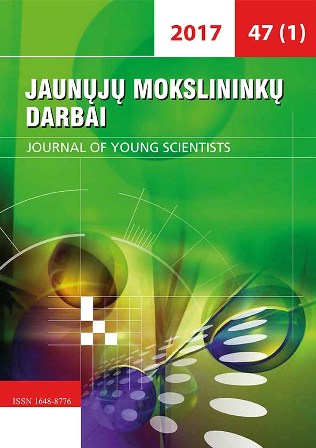VAIKO IR SUAUGUSIOJO TARPKULTŪRINIO, HERMENEUTINIO DIALOGO RAIŠKA ĮVAIRIOSE UGDYMO APLINKOSE
HERMENEUTICS APPROACH TO COMMUNICATION BETWEEN A CHILD AND AN ADULT IN VARIOUS EDUCATIONAL ENVIRONMENTS
Author(s): Inesa VietienėSubject(s): Media studies, Hermeneutics, ICT Information and Communications Technologies, Sociology of Education, Philosophy of Education, Pedagogy
Published by: Vilniaus Universiteto Leidykla
Keywords: dialogue between the child and adult; hermeneutics; diverse educational environments;
Summary/Abstract: As economic, social and political conditions are rapidly changing, information and communication technologies are constantly developing, approaches to the child and his education in childhood have also changed in a modern society Child education is based on a mutual dialogue between a child and an adult. The aim of the study is to reveal the hermeneutics of communication between a child and an adult in various educational environments. Objectives of the study: drawing on scientific literature review to define the concept of the hermeneutics of intercultural communication and reveal its manifestation in formal and informal educational environments. Methods of the study: scientific literature review, meta-analysis. Communication is one of the most universal and interesting experiences. From a hermeneutic perspective, communication aims not at disclosing meaning but gaining understanding. The hermeneutics of intercultural communication focuses on the problem of understanding since understanding rather than participating and interacting is of particular importance while interpreting one’s own experiences and perceptions. The family plays an important role in child education, it instills values, attitudes and ideals, develops social competences and skills needed to live in society. Child education is an open dialogue between the child and adult by focusing on the child’s experiences. Nowadays child education in educational institutions is based on the principle of hermeneutics. Hermeneutics creates conditions for child education in a formal environment to be perceived as a multidimensional and unique process from the perspective of various cultures, reveals the diverse experiences of the child and adult, a learner and an educator.
Journal: Jaunųjų mokslininkų darbai
- Issue Year: 2017
- Issue No: 1 (47)
- Page Range: 53-59
- Page Count: 7
- Language: Lithuanian

